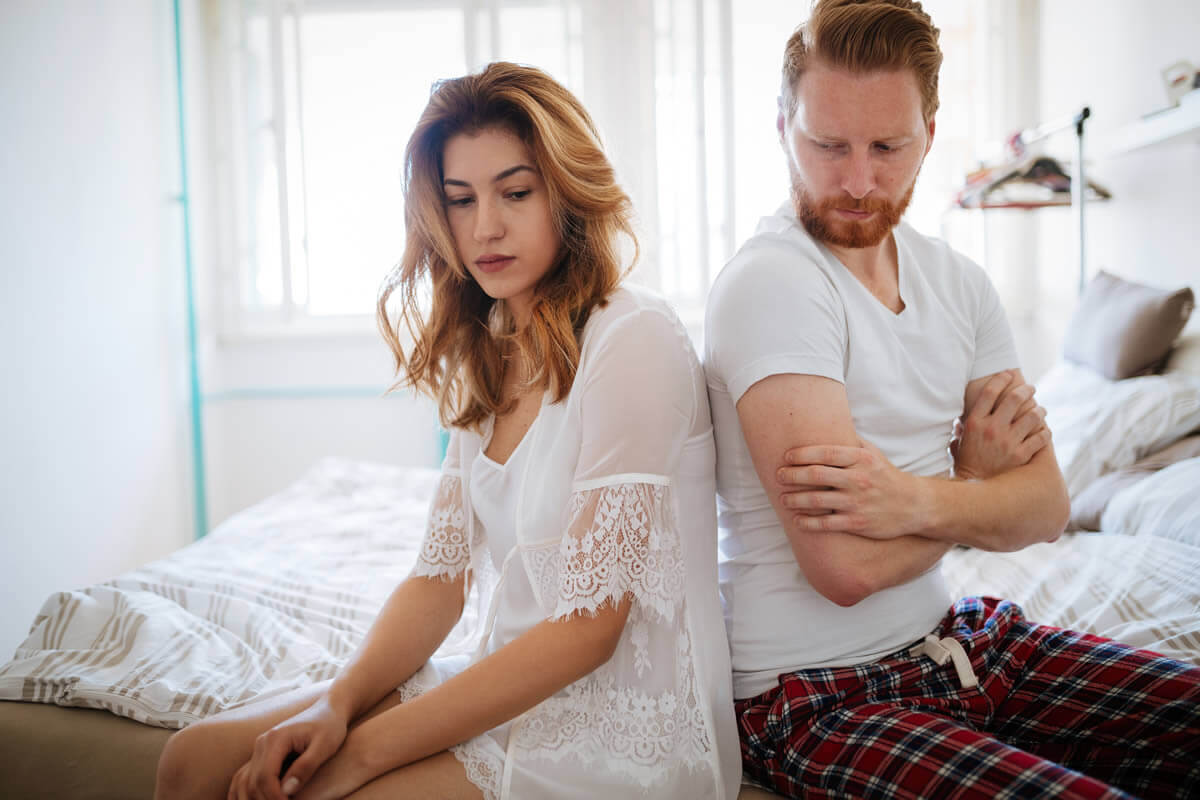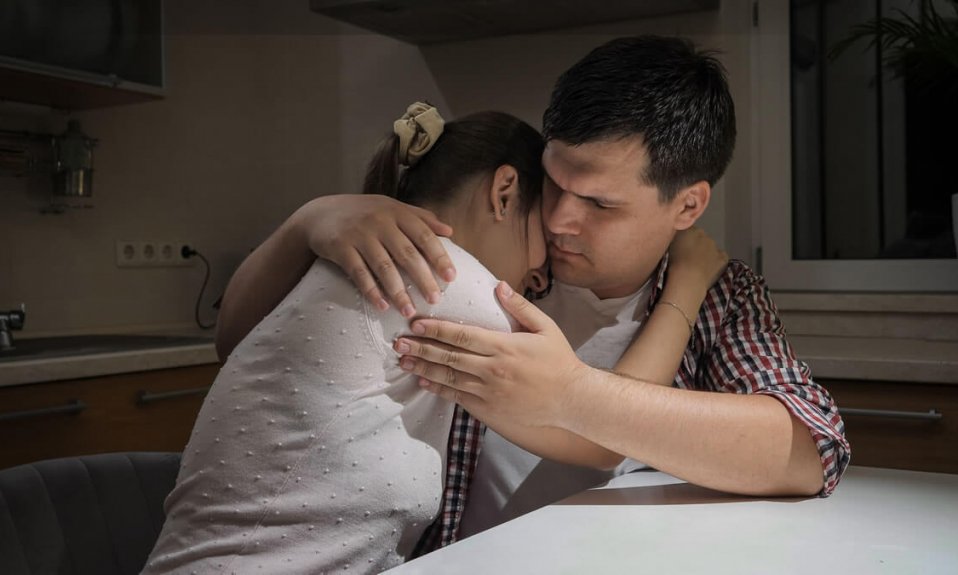Table of Contents Show
There are many reasons why women lose their sexual desire, and you may think or realize that they are losing interest in you. We have researched the reasons for such situations and what you need to do for you today.
And Victoria Milan has prepared the content “When A Woman Loses Interest In Her Husband” for you today. In this way, you can better understand the reasons why your spouse or partner lost their sexual desire and find a solution for this.

When A Woman Loses Interest In Her Husband?
Sexual Reluctance in Women
Approximately 33% of women feel sexual reluctance. One of the main causes of sexual reluctance, which is an important health problem, is that the person does not know his own body well enough and does not know how to enjoy the relationship.
In addition, cultural, moral and religious values can put pressure on women. Cases of harassment or rape experienced in the past may also cause sexual reluctance.
Fear of pregnancy, relationships with a sense of duty, premature ejaculation or erectile dysfunction, dryness, pain during sexual intercourse, changes in hormone levels during menopause, and side effects of some drugs are among the factors that cause sexual reluctance.
The stress of work and social life can also lead to sexual reluctance. In short, there may be many reasons behind this, and now let’s explain these reasons for you.
What is Sexual Aversion?
First of all, let’s examine what sexual reluctance is. In order for women to continue their sexual life in a healthy way, the person must be psychologically and physiologically healthy. In some periods, although it is considered normal for the person to not think of anything sexually or to have sexual reluctance, if this reluctance persists for 6 months or more, it must be treated.
Sexual reluctance is also defined as a decrease in the desire of a woman or a man to have sexual intercourse. Sexual reluctance also does not change when the person is sexually aroused. Or, in other words, the person is reluctant even when sexually aroused. In addition to physical and psychological fatigue, changes in quality of life can also lead to changes in sexual desire.

What Are The Symptoms Of Sexual Reluctance?
The primary symptom of sexual aversion is the absence of sexual desire. Sexual reluctance in women is much more common than in men. In fact, it is thought that approximately 33% of the total female population and approximately 14% of the male population have sexual reluctance problems in the society.
Conditions such as aging, pregnancy and menopause also cause sexual reluctance. It is thought that about half of women who have entered the menopause period have decreased sexual desire. Other symptoms of sexual reluctance are as follows:
– Decreased libido
– Not enjoying the relationship
– Lack of motivation
What Causes Sexual Reluctance?
Sexual reluctance, which can also be defined as not being willing to initiate sexuality and not responding to sexual stimuli from the partner, is a health problem that can be seen in both men and women.
Although sexual desire tends to decrease with age, this can be seen at any age. Among the causes of sexual reluctance, problems such as embarrassment of sexuality, fear, anxiety disorders, inability to achieve sexual intercourse, pain or pain during intercourse, arousal, sexual incompatibility can be listed.
Sexual reluctance, which is seen due to physical and psychological reasons, may also be caused by social changes in some cases. For example, sudden changes such as starting a new job, being fired or being promoted, giving birth, or the death of a family member can also cause sexual reluctance for women.
However, these situations are usually temporary. When sexual reluctance is seen due to physical and psychological reasons, this situation usually lasts much longer.
Sexual Reluctance Due to Physical Factors
There are many different reasons for this situation, which is directly related to the physical health of the person. Advanced age, menopause, not having sexual intercourse for a long time, some drugs used, diseases related to many organ failure, especially heart, thyroid diseases, multiple sclerosis, blood pressure, cervix and vagina infections, vaginal fungus, dryness and alcohol consumption is often among the physical factors that cause sexual aversion.
In addition to all these, sexual reluctance may occur during pregnancy, puerperium and breastfeeding periods. Hormonal changes; The high level of prolactin hormone, known as the milk hormone, in both men and women, the decrease in testosterone hormone levels in both sexes, decrease in estrogen during menopause and disorders in the adrenal glands can also cause sexual reluctance.
Structure and function disorders in the sexual organs, urological or gynecological disorders that affect sexual function are also among the physical causes that lead to a decrease in sexual desire.
Sexual Reluctance Due to Psychological Factors
Sexual reluctance due to psychological causes is among the most common sexual dysfunctions. So much so that approximately 99% of all sexual reluctance cases are psychological factors.
This situation can be caused by problems related to marriage, vaginismus etc. It can also be seen as a result of ailments. In addition to a wide range of disorders, painful sexual intercourse, sexual phobia, disgust, depression, and disorders accompanied by depression often lead to sexual reluctance.
Especially during periods of depression, sexual desire completely disappears. The person does not have any sexual desire, desire or motivation. Likewise, in cases of anxiety and panic disorder, the person may be sexually reluctant, as his focus is on fears and concerns.
Sexual reluctance is also frequently seen in severe personality disorders such as schizoid personality, paranoid personality and obsessive personality disorder. Sexual reluctance can also be seen as a side effect of some drugs that increase the level of serotonin used in the treatment of psychological factors.
How Is Sexual Indifference Treated?
There are many metabolic and psychological disorders that cause sexual reluctance. For treatment, the underlying cause should be investigated first. Therefore, it is extremely important for the person to give the correct anamnesis to the physician.
If the underlying cause is metabolic, such as heart, prostate, neurological diseases or diabetes, sexual reluctance disappears by treating these disorders.
However, if the focus underlying sexual reluctance is psychological, the person should contact a psychiatrist and get help in this regard. It is also extremely important that the spouses do not force each other and be patient during the treatment period.
What Should You Do In “When A Woman Loses Interest In Her Husband” Situation
If your partner’s sex drive has decreased, the first thing you should do is talk to him about it. But definitely stay away from judgmental conversations when discussing this topic!
Focus on analyzing this situation first, as this is a sensitive issue. And have a heartfelt conversation with your partner. If you think the problem is not due to psychological reasons. Our best advice in this regard is to talk to a doctor.
Because there can be many reasons behind sexual reluctance. And all can be solved. If you want to maintain a healthy relationship with your spouse, the first thing you need to do is support and understand him. With this support, you can overcome the problem of sexual reluctance.
That’s all for now from the content of “When A Woman Loses Interest In Her Husband” prepared by Victoria Milan for you today! If you want to learn more about such topics, you can stay tuned to Victoria Milan’s blog. You can also find the partner you are looking for in Victoria Milan. You can meet Victoria Milan’s users from all groups and easily find the partner you are looking for. Registration at Victoria Milan is free. Click to register with Victoria Milan!

FAQ About When A Woman Loses Interest In Her Husband
Why Does A Woman Lose Interest In Her Husband?
There can be many reasons for the loss of sexual desire in women, these are; There may be relationship problems between couples, psychological problems or physiological diseases. For this reason, you can ask your partner to find out the reason for his sexual desire, or you can see a doctor for this.
What Should You Do If Your Spouse Has Lost Interest In You?
If your spouse has lost interest in you, first take care to find out the reason for this situation. Talk to your spouse about this issue, but be careful not to react to him while talking about this sensitive issue and try to understand him. If this is related to your relationship, find solutions together. If not, you can get support from a doctor.
At What Age Does a Woman Stop Being Sexually Active?
This may differ from woman to woman. Researchers have determined that the average age for a woman to lose her sexual desire is 67. But as we said, this situation can vary from woman to woman.









